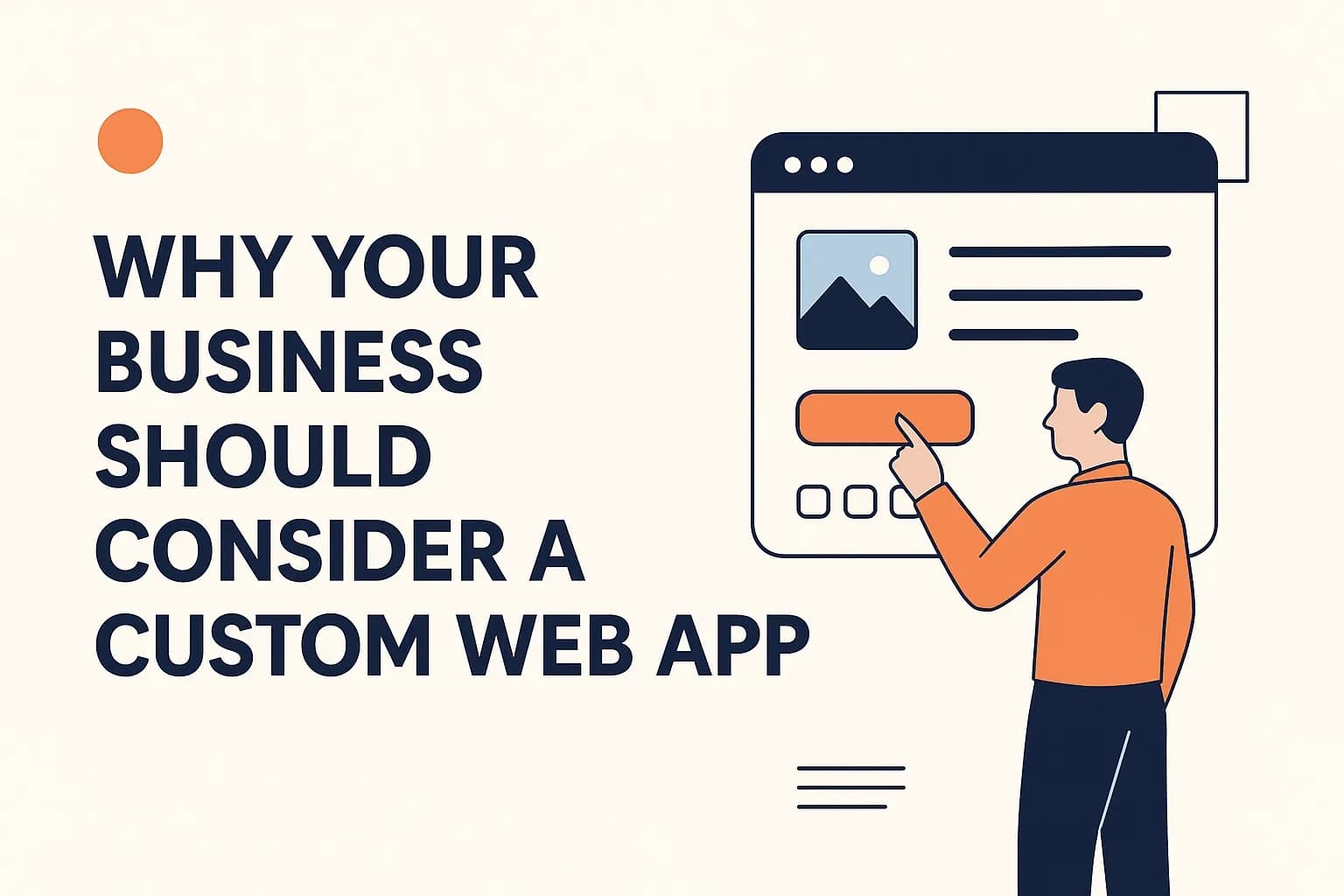🚀 Website vs Web App: What's the Difference?
A website is generally static. It's designed to deliver information: who you are, what you do, and how users can contact you. Think of it as a digital brochure.
A web application, on the other hand, is interactive and dynamic. Users don’t just consume content—they perform actions. Whether it’s booking appointments, managing inventory, or accessing a customer dashboard, web apps are built to do things.
| Feature | Website | Web App |
|---|---|---|
| Purpose | Informational | Functional / Interactive |
| User Interaction | Minimal (reading, viewing) | High (forms, transactions, dashboards) |
| Examples | Company portfolio, blogs, landing pages | CRMs, eCommerce systems, booking platforms |
| Tech Stack | HTML, CSS, JavaScript | HTML, CSS, JavaScript + backend logic |
🧩 Why Your Business Might Need a Custom Web App
1. Automation of Manual Processes
If your team spends hours on tasks like appointment scheduling, order processing, or employee onboarding, a web app can automate those workflows—saving time and reducing human error.
2. Enhanced Customer Experience
Unlike websites, web apps offer personalized dashboards, progress tracking, secure logins, and instant interactions—all of which can significantly improve your customer's experience.
3. Scalability as You Grow
Custom web apps are built with your future in mind. As your business scales, your web app can evolve too—by adding features, integrating with other systems, or serving more users efficiently.
4. Competitive Advantage
A custom tool tailored to your workflow can set you apart from competitors using generic software. It becomes a unique asset that aligns with your business model.
5. Better Data Management & Insights
Web apps can help you collect, store, and analyze valuable user data—allowing you to make informed business decisions based on real usage, not guesswork.
📈 Real-World Example
Let’s say you run a co-working space (like one of our recent clients). A standard website would list your locations and contact info. But a custom web app allows users to:
View available rooms in real-time
Book and pay for a space instantly
Manage their profile and booking history
Receive automated reminders
This not only boosts your operational efficiency but also provides a seamless user experience—something a basic website can't offer.
🛠️ Should You Build One from Scratch?
Not every business needs a fully custom app from day one. But if you're:
Repetitively using spreadsheets or emails for operations
Juggling multiple third-party tools with no integration
Looking to improve customer retention
Preparing to scale
...then it's probably time to talk to a development team about building something purpose-built.
🧠 Final Thoughts
A traditional website will help people find you.
A custom web app will help them interact with you, stay with you, and grow with you.
At RIPEET IT Solutions, we specialize in crafting tailored web applications that solve real business problems—helping you move faster, serve better, and scale smarter.
Need help figuring out if a custom web app is right for you?
Contact us today for a custom web app.
